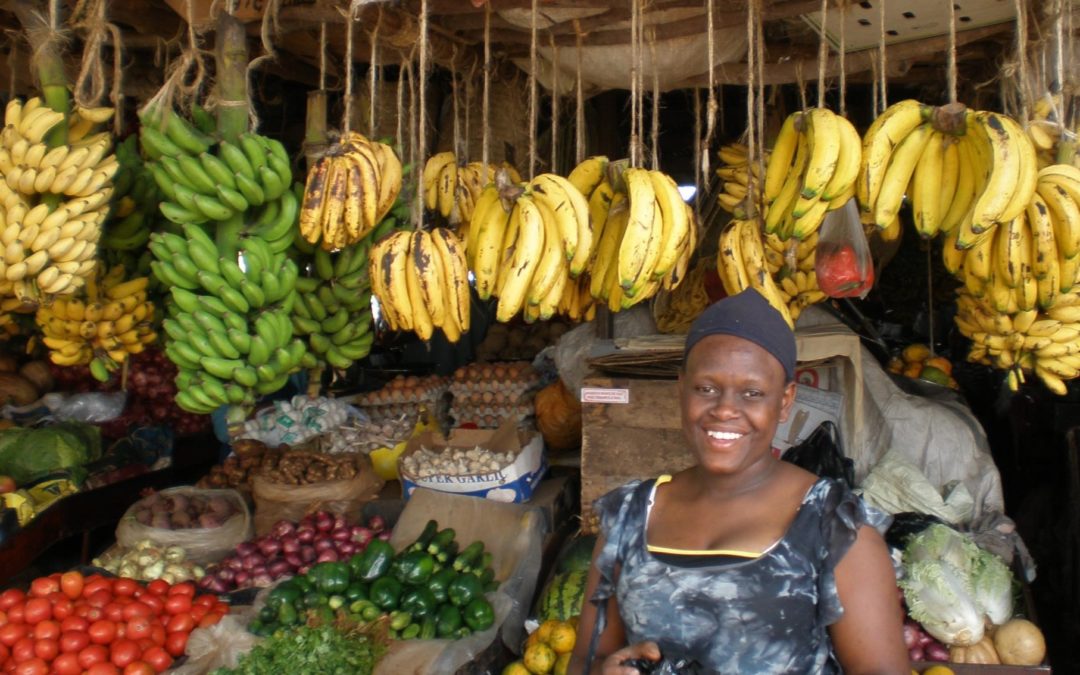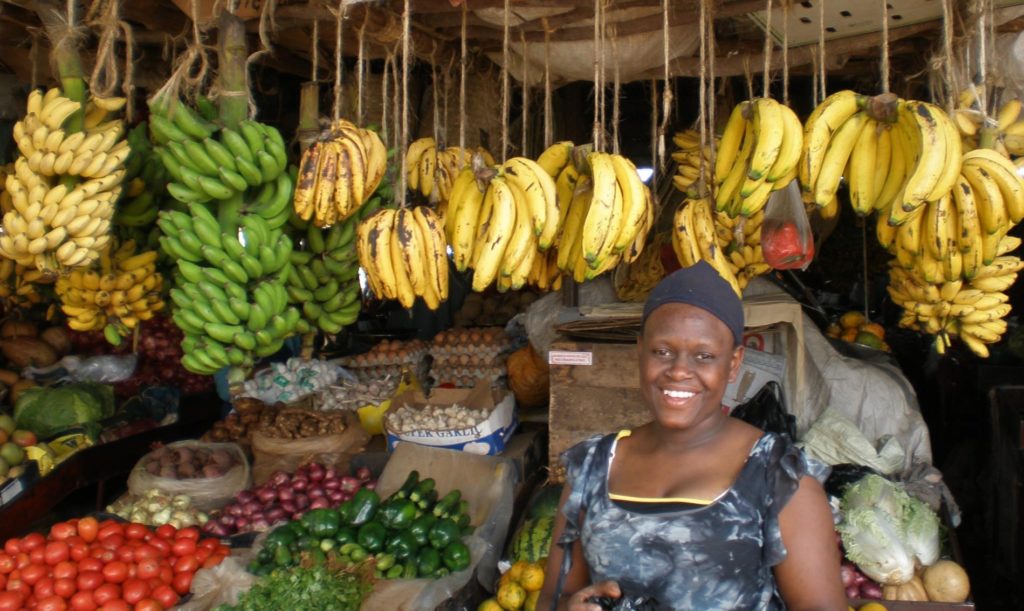Big data helping low-income consumers in Nairobi better access fresh fruit and vegetables
Underused data, big data analytics, and ICT survey tools promise to reveal new and useful insights into the complex, multi-actor markets that feed Nairobi’s growing urban population.
Each day, hundreds of thousands of people shop at lively, vibrant markets like this one across Kenya’s capital city, spending up to 60% of their income on food, yet access to affordable, nutritious fresh fruits and vegetables remains a challenge for low-income, urban consumers.
A new research project led by the Alliance of Bioversity International and CIAT and Twiga Foods aims to leverage a combination of big data analytics and innovative, participatory survey methods in order to improve access and affordability of fresh produce for low-income consumers in Nairobi–a population that faces disproportionately high nutritional deficiencies such as low iron, zinc and vitamin A levels due, in part, to lack of nutrient-dense, fresh foods.
The “Hungry Cities: Inclusive food markets in Africa” project team, recipient of a 2019 Inspire Challenge grant from the CGIAR Platform for Big Data in Agriculture, will analyze five years of commercial data on 17 fruit and vegetable crops and conduct months of surveying using innovative ICT tools.
Led by the Twiga Foods team, work is currently underway to develop apps that will be used to survey informal wholesalers and retailers at markets across the city.
“The first app will help to identify commodities sold by retailers and wholesalers, who is buying from them, commodity qualities such as freshness, pricing, and how the businesses of those retailers and wholesalers are shaped over time,” says Christine Chege, an agri-nutrition and food systems specialist at the Alliance of Bioversity International and CIAT.
A second app will be developed to collect crucial commodity data from consumers. The team will survey 2000 market go-ers on their perceptions of various products, such as safety, quality, and affordability and their reasons for purchasing certain foods. Consumers will also be interviewed on their consumption behavior to understand what they consume and what drives their food choices and consumption behavior. In the second phase of the research, a sub-sample of consumers will be selected for follow-up surveys using the 5Q approach developed by CIAT–a low-cost and easy-to-use survey tool that uses five basic questions to determine changes in knowledge, attitude, and skills.
“All this information will inform the private sector on what commodities to focus on based on what the consumers want, with the goal of improving nutrition security of vulnerable consumers,” explains Chege.
In tandem with the novel, multi-tiered surveying, the team will leverage big data analytics to gain insight into a wealth of commercial fruit and vegetable data made available by the Nairobi-based start-up and project partner, Twiga Foods.
“Twiga, powered by technology and data, leads in continuously offering nutritious fresh food at stable prices to growing urban dwellers,” says Joram Kabach, Head of Business Intelligence at Twiga.
The company’s dataset, which was collected using mobile technology, spans from 2014 to 2018 and comes from more than 20,000 farmers and 38,000 retailers in the Nairobi food system.
“We want to make use of the available data from Twiga Foods to inform retailers and wholesalers on what consumers want and at what price level,” says Chege.
Chege also emphasizes that the project aims to focus specifically on outlets run by women retailers who are connected through ICT tools, increasing economic opportunities for a group often overlooked or excluded by policy and market interventions. More than 75% of the retailers that Twiga Foods work with are women owned. Working with these women empowers them economically, and this has implications on the food and nutrition security of their households.
Although the project is in its early days, its potential is powerful; underused data, big data analytics, and ICT survey tools promise to reveal new and useful insights into the complex, multi-actor markets that feed Nairobi’s growing urban population, ultimately improving commodity dynamics for consumers and bettering their diets through access to fresh, nutritional food.
Visit the project page for more information and the latest updates.
Feature photo: A. Vezina / Bioversity International. Diversity of commodities on display at a fruit and vegetable market in Nairobi, Kenya.
May 28, 2020
Hannah Craig
Communications Deputy
CGIAR Platform for Big Data in Agriculture
37 - 37Shares
Latest news
37 - 37Shares






